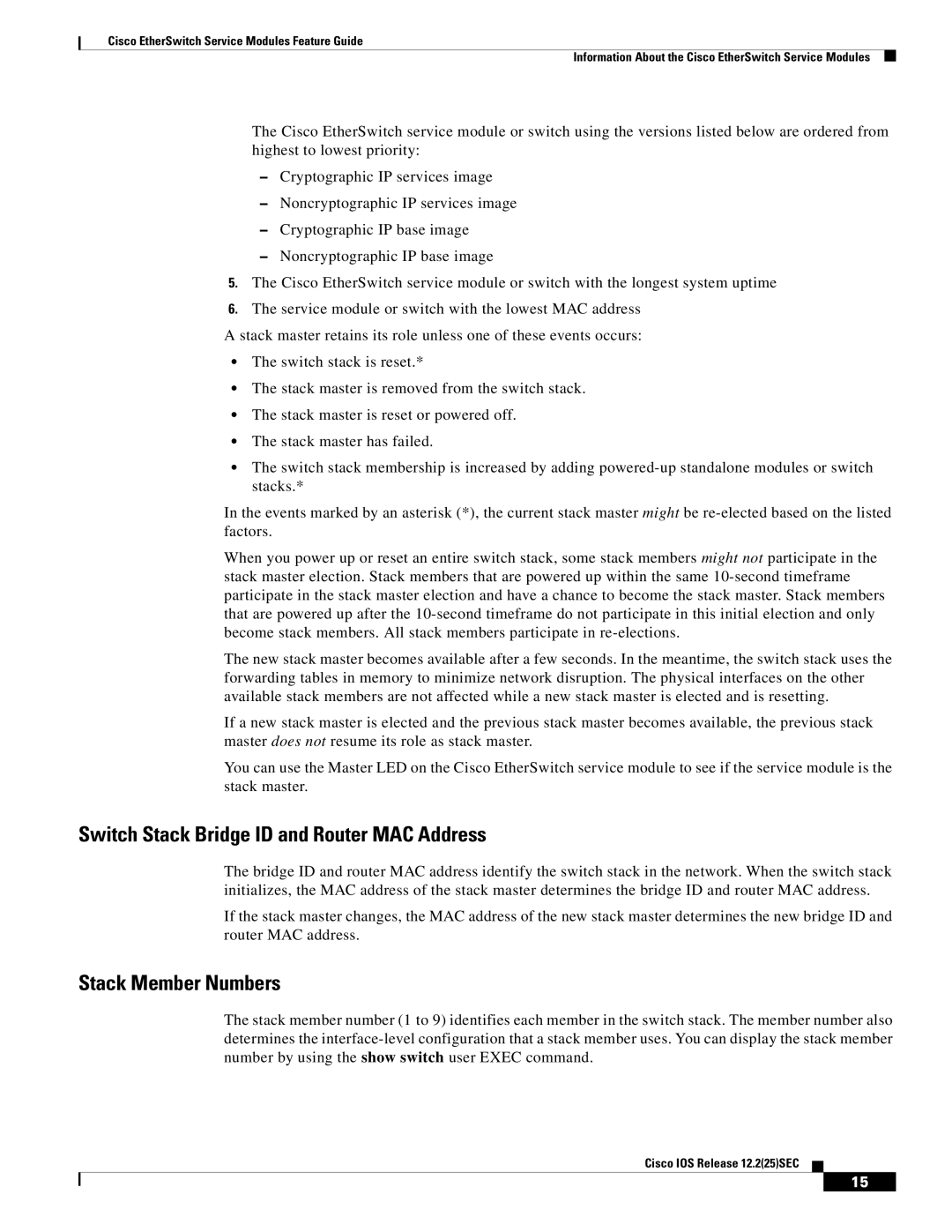
Cisco EtherSwitch Service Modules Feature Guide
Information About the Cisco EtherSwitch Service Modules
The Cisco EtherSwitch service module or switch using the versions listed below are ordered from highest to lowest priority:
–Cryptographic IP services image
–Noncryptographic IP services image
–Cryptographic IP base image
–Noncryptographic IP base image
5.The Cisco EtherSwitch service module or switch with the longest system uptime
6.The service module or switch with the lowest MAC address
A stack master retains its role unless one of these events occurs:
•The switch stack is reset.*
•The stack master is removed from the switch stack.
•The stack master is reset or powered off.
•The stack master has failed.
•The switch stack membership is increased by adding
In the events marked by an asterisk (*), the current stack master might be
When you power up or reset an entire switch stack, some stack members might not participate in the stack master election. Stack members that are powered up within the same
The new stack master becomes available after a few seconds. In the meantime, the switch stack uses the forwarding tables in memory to minimize network disruption. The physical interfaces on the other available stack members are not affected while a new stack master is elected and is resetting.
If a new stack master is elected and the previous stack master becomes available, the previous stack master does not resume its role as stack master.
You can use the Master LED on the Cisco EtherSwitch service module to see if the service module is the stack master.
Switch Stack Bridge ID and Router MAC Address
The bridge ID and router MAC address identify the switch stack in the network. When the switch stack initializes, the MAC address of the stack master determines the bridge ID and router MAC address.
If the stack master changes, the MAC address of the new stack master determines the new bridge ID and router MAC address.
Stack Member Numbers
The stack member number (1 to 9) identifies each member in the switch stack. The member number also determines the
Cisco IOS Release 12.2(25)SEC
15
